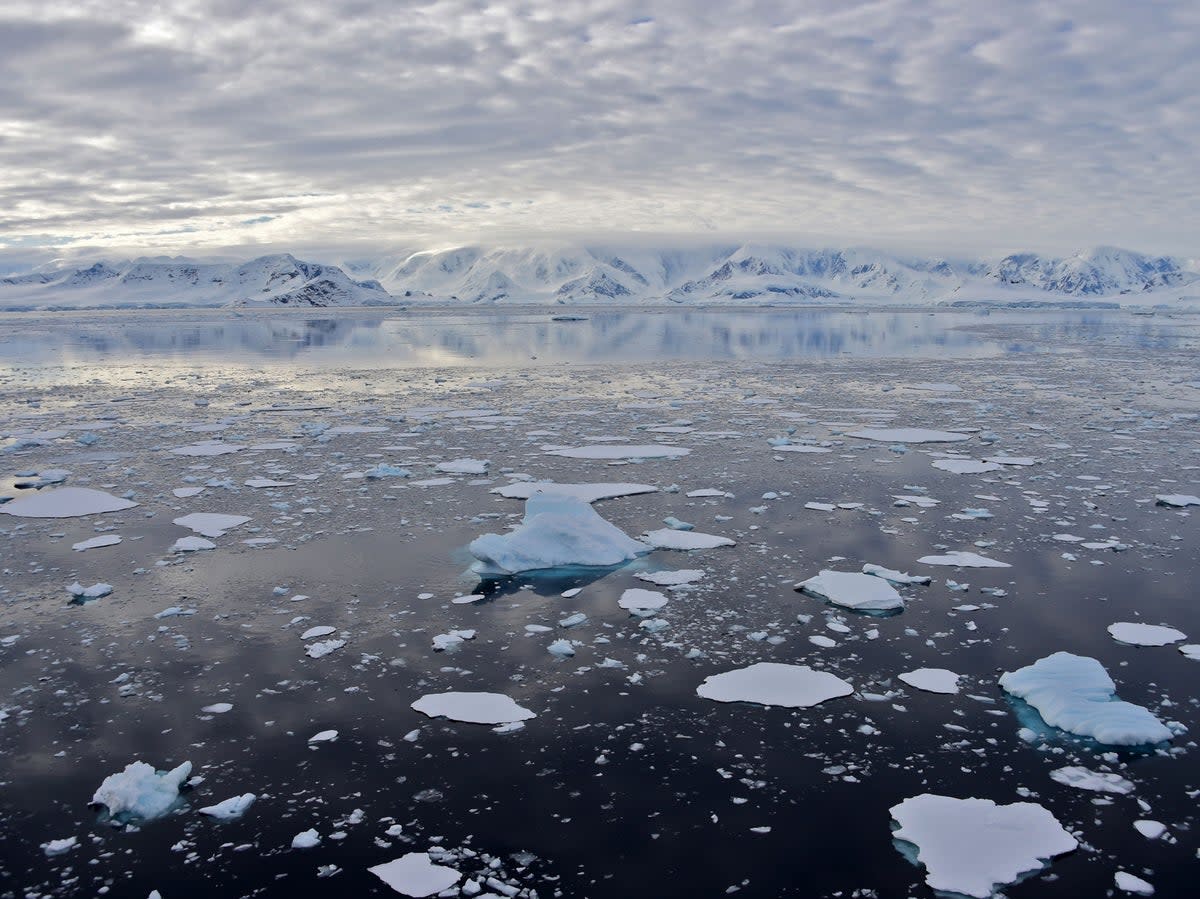‘Extraordinary marine heatwave’ could threaten Antarctica’s ice shelves

There are signs of an “extraordinary marine heatwave” in the Antarctic, a scientist monitoring ocean temperatures in the region has warned.
While the south pole previously appeared to buck the trend of global heating seen elsewhere, cooling until the 1980s, the continent is now one of the fastest-warming places on the planet – and is seeing record-high temperatures as sea ice levels hit new lows.
Dr Carlos Moffat, an oceanographer from the University of Delaware, has been studying the ocean in the region for decades. While he and his fellow scientists have witnessed “extraordinary change” in marine temperatures over that period, Dr Moffat warned of a “dramatic” shift in the past year.
Despite having not been previously common in the region, “episodes of relatively rapid ocean warming that can persist for months have been occurring all over the place”, Dr Moffat said, following his most recent research voyage as chief scientist for the Palmer Long Term Ecological Research programme.
“Even as somebody who’s been looking at these changing systems for a few decades, I was taken aback by what I saw, by the degree of warming that I saw,” he told Inside Climate News.
“We don’t know how long this is going to last. We don’t fully understand the consequences of this kind of event, but this looks like an extraordinary marine heatwave.”
Among the data gathered during his most recent trip aboard the RV Laurence M Gould icebreaker were the first readings from temperature and salinity sensors put in place several years ago, intended to provide researchers with a solid baseline for future study.
While it is “too early and difficult” to directly attribute the conditions of the past year to long-term climate breakdown, Dr Moffat said: “It seems to me that this might be a really unprecedented event.”
The voyage covered an area stretching more than 600 miles long, and Dr Moffat said that ocean temperature readings dating back to April 2022 show consistently warm conditions around the Antarctic Peninsula, according to the news site.
“That’s a very significant region,” he said. “We don’t have data going back 30 years for the entire region. But for the parts of the shelf for which we do have that data, it really seems extraordinary. It’s very difficult to warm the ocean, and so when we see these conditions, that really speaks to a very intense forcing.”
The Earth’s oceans are thought to absorb around 90 per cent of the excess heat trapped by emissions of greenhouse gases, and records dating back to 1958 show persistent warming, with the rise in temperatures accelerating after 1990 to continually record highs.
While Antarctica was still thought to have been gaining ice until around 2014, “that has shifted”, according to Dr Johan Rockstrom, director of the Potsdam Institute for Climate Impact Research.
That same year, the UN’s leading climate science body, the Intergovernmental Panel on Climate Change (IPCC), warned that possible climate scenarios could lead to “abrupt and irreversible ice loss” in the Antarctic – the year before world leaders pledged to try to keep global heating to below 1.5C upon pre-industrial levels under the Paris Agreement.
Dr Rockstrom warned that the recent signals from Antarctica raise concerns that a feedback cycle of warmer oceans and melting ice is under way.
“We know the melting of Antarctica is most sensitive to lubrication by water. It’s the sea melting the ice from below, it’s not atmospheric melting from above,” he told Inside Climate News.
“And this is really, really worrying … and quite surprising, because up until 10 years ago, we were absolutely convinced that the Greenland ice sheet and the Arctic was the more sensitive of the two poles.”

 Yahoo News
Yahoo News 
